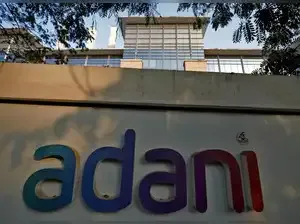
Realty developers Adani Realty and Marathon Nextgen Realty have formed a joint venture to develop a large commercial project including offices and retail spaces in South Mumbai’s Byculla with an estimated gross development value of Rs 3,400 crore.
The project will comprise around 1.2 million sq ft of office and retail space within the larger Monte South campus, which already includes four residential towers.
The commercial development marks Adani Realty’s latest entry into central Mumbai’s office market and will expand Marathon’s presence beyond its earlier projects in the city.
The joint venture between Adani Realty and Marathon Nextgen comes at a time when developers are expanding mixed-use projects in central locations to tap rising occupier demand and integrate commercial and residential components within single developments.
This project will be part of both the companies’ mixed-use project with residential and business spaces. The ongoing residential phase includes four towers with a total saleable carpet area of over 1.6 million sq ft, Marathon Nextgen Realty said in a regulatory filing.
According to the company, tower A of the ongoing project has received the occupation certificate, tower B’s civil structure has topped out, tower C has reached the 12th slab, and tower D is yet to be launched.
The proposed commercial component’s construction is expected to follow the completion sequence of the residential development.
Marathon Nextgen has earlier developed a commercial complex in Lower Parel that houses several multinational and domestic companies. The new Byculla project is seen as an extension of its commercial portfolio within the city’s established business districts.
Realty developers across India are increasingly forming strategic alliances through joint ventures, development management agreements, and equity partnerships to optimise capital deployment and accelerate project execution.
These collaborations allow companies to combine land holdings, financial resources, and development expertise, particularly in high-value urban markets where entry costs are steep and regulatory processes are complex.
Partnerships between established players in Mumbai, or other similar tie-ups in Bengaluru, Gurugram, and Pune reflect a broader trend of risk-sharing and consolidation in the real estate sector. Such alliances are also enabling faster scale-up of large mixed-use and commercial projects while ensuring stronger balance sheet discipline amid rising construction and financing costs.
The project will comprise around 1.2 million sq ft of office and retail space within the larger Monte South campus, which already includes four residential towers.
The commercial development marks Adani Realty’s latest entry into central Mumbai’s office market and will expand Marathon’s presence beyond its earlier projects in the city.
The joint venture between Adani Realty and Marathon Nextgen comes at a time when developers are expanding mixed-use projects in central locations to tap rising occupier demand and integrate commercial and residential components within single developments.
This project will be part of both the companies’ mixed-use project with residential and business spaces. The ongoing residential phase includes four towers with a total saleable carpet area of over 1.6 million sq ft, Marathon Nextgen Realty said in a regulatory filing.
According to the company, tower A of the ongoing project has received the occupation certificate, tower B’s civil structure has topped out, tower C has reached the 12th slab, and tower D is yet to be launched.
The proposed commercial component’s construction is expected to follow the completion sequence of the residential development.
Marathon Nextgen has earlier developed a commercial complex in Lower Parel that houses several multinational and domestic companies. The new Byculla project is seen as an extension of its commercial portfolio within the city’s established business districts.
Realty developers across India are increasingly forming strategic alliances through joint ventures, development management agreements, and equity partnerships to optimise capital deployment and accelerate project execution.
These collaborations allow companies to combine land holdings, financial resources, and development expertise, particularly in high-value urban markets where entry costs are steep and regulatory processes are complex.
Partnerships between established players in Mumbai, or other similar tie-ups in Bengaluru, Gurugram, and Pune reflect a broader trend of risk-sharing and consolidation in the real estate sector. Such alliances are also enabling faster scale-up of large mixed-use and commercial projects while ensuring stronger balance sheet discipline amid rising construction and financing costs.








